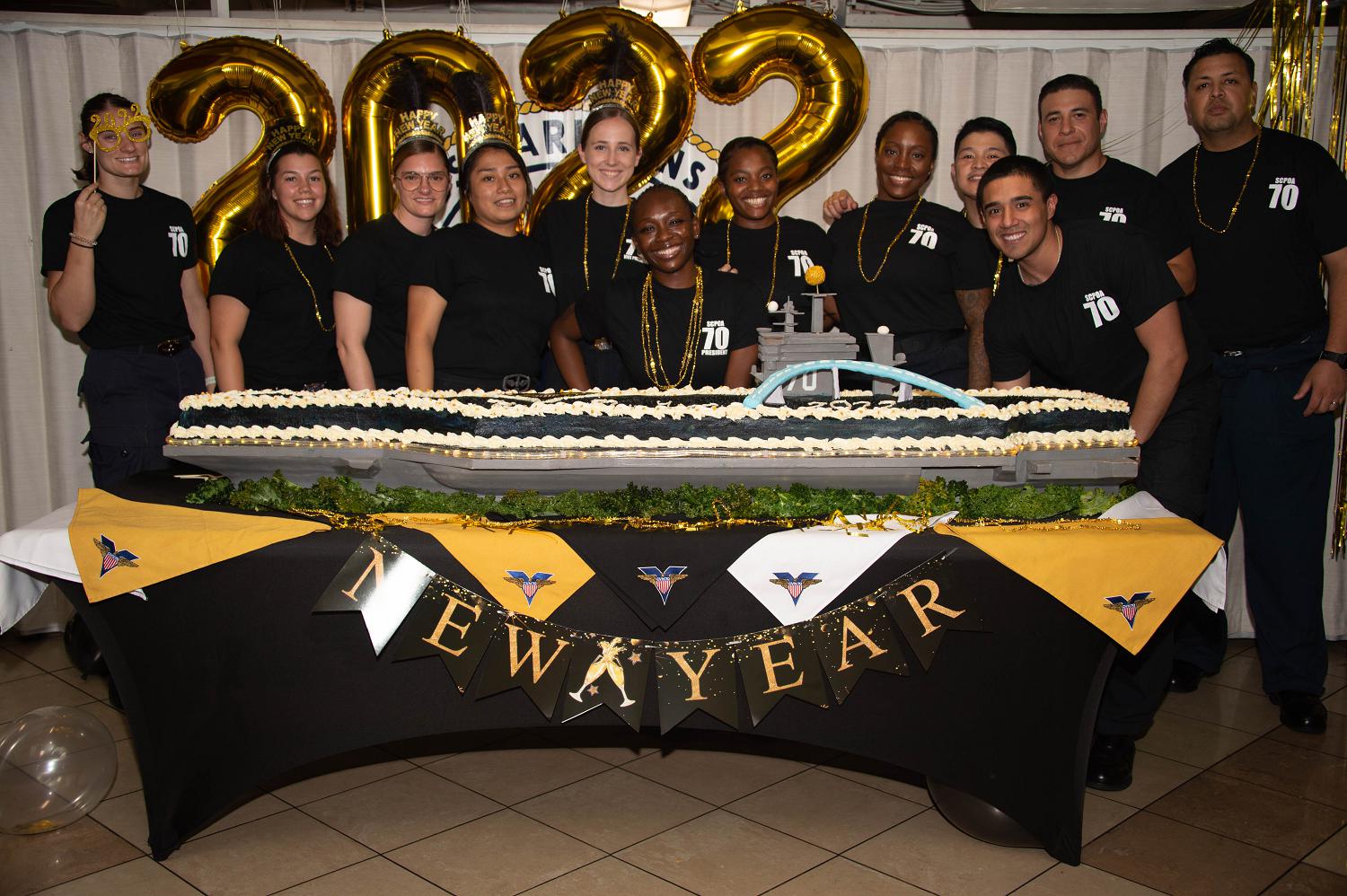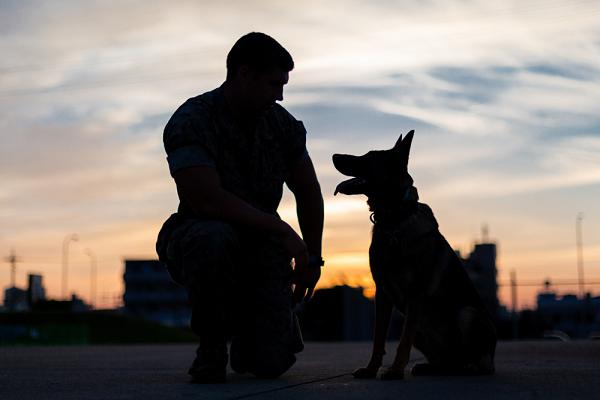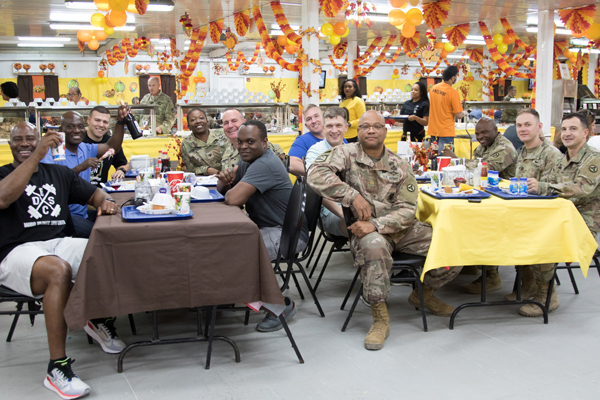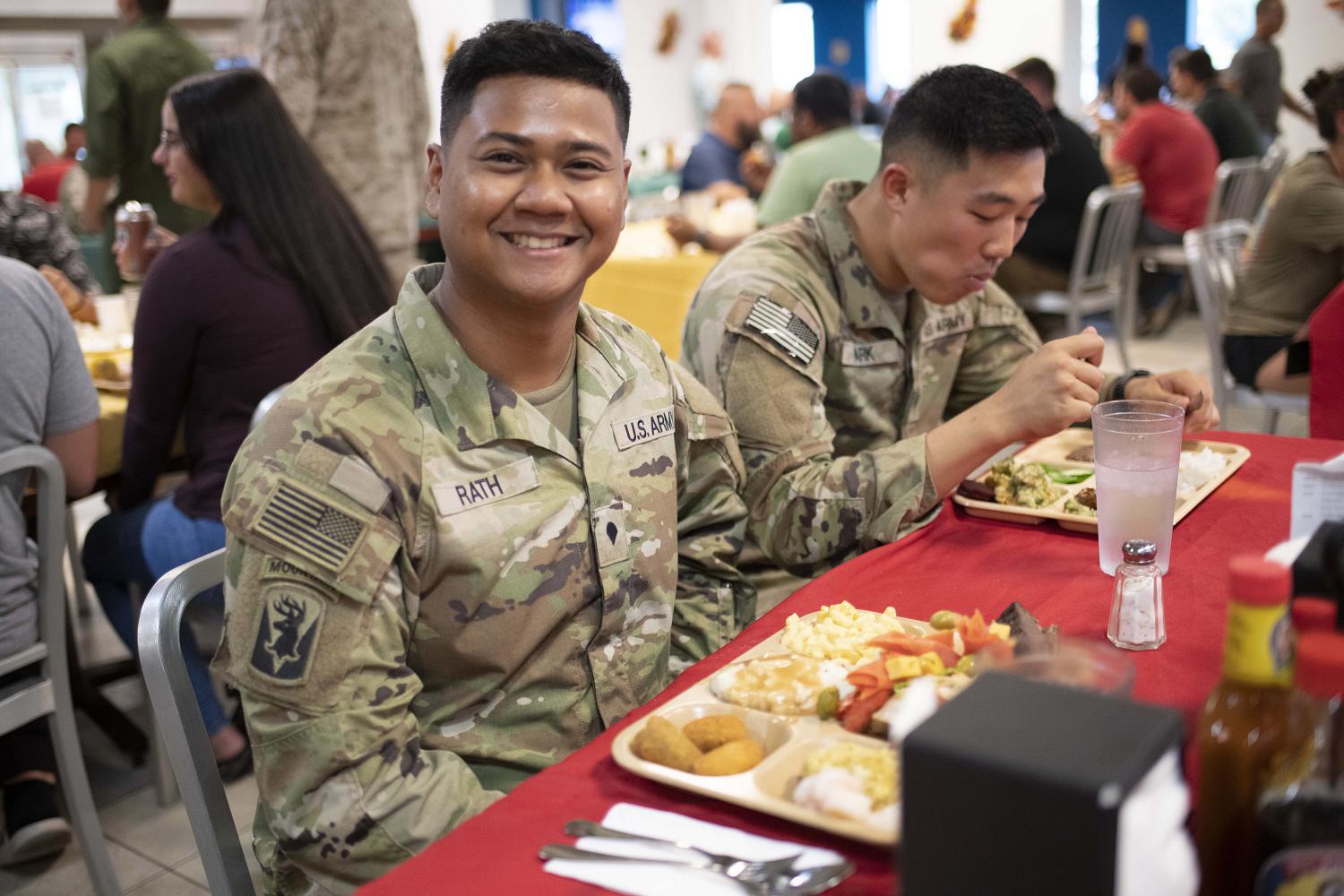- Details
- Hits: 1793

PHILIPPINE SEA (Dec. 31, 2021) - Sailors assigned to Nimitz-class aircraft carrier USS Carl Vinson (CVN 70), pose next to a cake in the mess decks during a New Year’s Eve celebration, Dec. 31, 2021. Carl Vinson Carrier Strike Group is on a scheduled deployment in the U.S. 7th Fleet area of operations to enhance interoperability through alliances and partnerships while serving as a ready-response force in support of a free and open Indo-Pacific region. Photo by Seaman Leon Vonguyen . Your donations for yellow ribbon care package troop support boosts the morale of active duty deployed service members like these worldwide.
- Details
- Hits: 1521

YUMA, AZ, Dec 23, 2021 - Decorations with a Grinch theme are placed in the outbound section in the Installation Personnel Administration Center (IPAC) at Marine Corps Air Station Yuma, Arizona, Dec. 23, 2021. The IPAC Christmas party had activities such as a white elephant gift exchange, ugly sweater and a best decorated section competition. Photo by Lance Cpl. Gabrielle Sanders
- Details
- Hits: 1465

Joint Base San Antonio-Lackland, De. 16, 2021 - U.S. Air Force members from the Band of the West perform Christmas music, Dec. 16, 2021, at Joint Base San Antonio-Lackland, Texas. The event included a variety of holiday songs to spread holiday cheer. The band provides hundreds of performances to military and civilian audiences throughout the year. The musicians consisted of Master Sgt. Jennifer Kost on oboe; Tech. Sgt. Melissa Rocha on flute; Staff Sgt. Nichol Zettlemoyer on bassoon; Senior Airman Jessica Hughes on clarinet; and Airman 1st Class Corey Simmel on French horn. Photo by Sarayuth Pinthong
- Details
- Hits: 1713

US, Afghanistan, December 7, 2021 - Your SOT team has today embarked on its part in saving the remaining military working dogs that were left behind in Afghanistan. No dog left behind! Like a lot of what we do, not a lot can be said about how we’re getting it done, but suffice it to say you can be proud that through some very intricate and artful connections with several groups and individuals the mission is well underway and we hope to pass along some positive news later in the holiday season or shortly thereafter. Every dog has his day and these are definitely the days of the dogs. Ever forward!
- Details
- Hits: 2319

CAMP ARIFJAN, KUWAIT, Nov 25, 2021 - “Spears Ready” Soldiers assigned to the Fort Bragg, N.C., based 3rd Expeditionary Sustainment Command enjoy their Thanksgiving meal at Camp Arifjan, Kuwait, on Nov. 25, 2021. 3rd ESC Soldiers have been deployed since August serving in support of the 1st Theater Sustainment Command.
Photo by Sgt. 1st Class Mary Katzenberger
- Details
- Hits: 2167

CAMP LEMONNIER, Djibouti (Nov. 25, 2021) – U.S. Army Spc. Patrick Rath, from Danbury, Conn., enjoys a Thanksgiving meal. Camp Lemonnier, Djibouti (CLDJ) serves as an expeditionary base for U.S. military forces providing support to ships, aircraft and personnel that ensure security throughout Europe, Africa and Southwest Asia. The base enables maritime and combat operations in the Horn of Africa while fostering positive U.S.-Africa relations.
- Exercise Noble Jaguar: Navy-Marine Corps team brings integrated lethality in the littorals
- Vermont Guardsman Solves M17 Training Round Jamming Issue
- Fort Gordon Receives $196,784.64 of Free PPE from SupportOurTroops.Org!
- $39,534 of Pain Relief Muscle Balm to Fort Hood, Texas
- 9/11 Pentagon Survivors Talk With High School, College Students About Experience
- Guard Pilot Who Flew Over D.C. Following 9/11 Likened Attacks to Modern-Day Pearl Harbor


